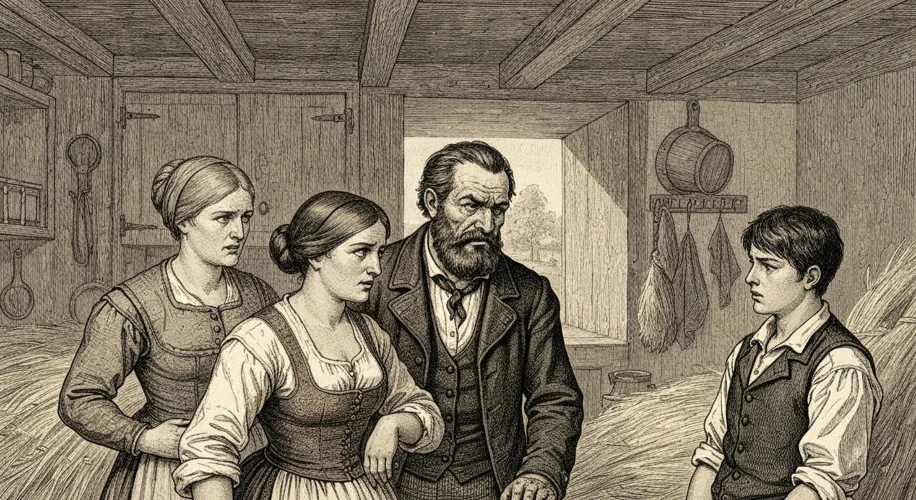When we hear the term “honor killing,” our minds often drift to distant lands and ancient traditions, far removed from the familiar streets of Western Europe. Yet, history, like a restless tide, often washes up unexpected truths onto our shores. It turns out that the grim practice of “honor killings,” where a family member, typically a woman, is murdered to restore perceived honor to the family, was not confined to the East.
In the rugged landscapes of Sicily, the mountainous terrains of Albania, and the crossroads of Macedonia, this brutal custom persisted well into the 1960s. But the question lingers: did similar, though perhaps less documented, concepts of preserving family honor through extreme violence exist within the historical fabric of Western Europe?
The Shadow of Shame in Rural Europe
While the overt and documented cases are fewer in Western Europe compared to regions where it persisted into the late 20th century, the underlying societal pressures that fuel honor killings – the intense focus on reputation, female chastity, and patriarchal control – were certainly present across the continent for centuries.
Consider the context of rural, agrarian societies where communities were often tightly knit and gossip could be a powerful, even deadly, weapon. In places like rural France, Italy, or Spain, a woman’s perceived transgression – eloping, premarital pregnancy, or even an alleged infidelity – could bring immense shame upon her family. The family’s standing in the community, their ability to forge advantageous marriages for other children, and their overall social capital could be irrevocably damaged.
While explicit legal records of “honor killings” as a distinct crime might be scarce in Western European history, instances of women being murdered by male relatives under the guise of “crimes of passion” or defending family honor did occur. These were often treated as crimes of passion, resulting in lighter sentences for the perpetrators, implicitly acknowledging the societal pressure or “honor” motive.

Legal Loopholes and Societal Acceptance
In many parts of Europe, particularly in the 18th and 19th centuries, legal systems often reflected patriarchal societal norms. A husband or father who killed his wife or daughter for adultery might be seen not as a cold-blooded murderer, but as a man driven to extremes by a profound breach of honor. Sentences could be significantly reduced, or in some cases, even pardoned, reflecting a societal tolerance for such acts, however grim.
For example, in Italy, the concept of “delitto d’onore” (crime of honor) was legally recognized until 1981. This legal framework allowed for reduced penalties for a man who killed his wife, daughter, or sister caught in the act of adultery. While this law was eventually repealed, its existence points to a deeply ingrained cultural acceptance of this notion of honor that transcended mere domestic disputes.
Similarly, in some regions of France, the “crime passionnel” defense, often invoked in cases of infidelity-related killings, served a similar function, allowing perpetrators to escape the full severity of the law by appealing to a sense of violated honor and emotional turmoil.
The Unseen Victims
While the sensationalism of honor killings tends to focus on the act of murder itself, the societal conditions that permit them are equally important. In pre-industrial and early industrial Western Europe, where social mobility was often limited and family reputation paramount, women were frequently the custodians of family honor. Their sexuality, marital status, and adherence to societal norms were meticulously policed, not just by the community, but by their own families.
A young woman who defied parental authority in matters of marriage, or who engaged in relationships deemed scandalous, could face severe ostracization or even violence. The fear of bringing shame upon the entire family could be a powerful deterrent, and for those who transgressed, the consequences could be fatal. These acts, often carried out within the privacy of the home, would rarely make it into official records as “honor killings” but were understood within their community as such.

Echoes and Endurances
While the explicit legal and cultural frameworks supporting “honor killings” have largely been dismantled in Western Europe, the underlying concepts of family honor and the intense societal pressure to conform can still manifest in subtler, yet still damaging, ways. Understanding this history is crucial not only for grasping the full scope of this tragic practice but also for recognizing the long shadow it has cast and the societal shifts required to truly eradicate it.
The history of “honor killings” in Europe, even in its Western reaches, is a somber reminder that the pursuit of honor can, in its most perverted forms, lead to the ultimate dishonor: the extinguishing of a life. It compels us to look beyond simplistic narratives and confront the complex interplay of culture, law, and human behavior that has shaped our past and continues to influence our present.
It’s a stark reminder that the struggle for individual autonomy and the liberation from oppressive traditions is a journey that has been waged across continents and centuries, with many silent battles fought within the very heart of families.

